Mistress of Africa Al-Kahina: The witch the Arabs feared
In the Islamic world, men are the absolute rulers and their authority is unshakable. Therefore, the Arab chronicles, which describe the campaign of the soldiers of Islam against the ruler-woman, are perceived by many skeptically. Moreover, this woman managed to organize her people and give the invaders a worthy rebuff. Whatever it was, but history has preserved the details of this war and the name of the ruler-Dahiya Al-Kahina.
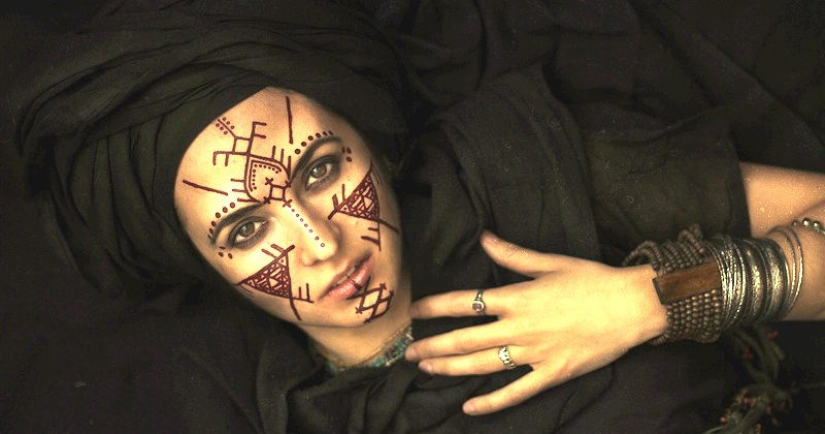
Arab historians did not like this moment of their people's history too much, so the first mention of Dahiya Al-Kahin appeared many years after her death. As expected, her life and struggle have been overgrown with many conjectures and legends, so today there is very little reliable information about this lady of the Berber tribes.
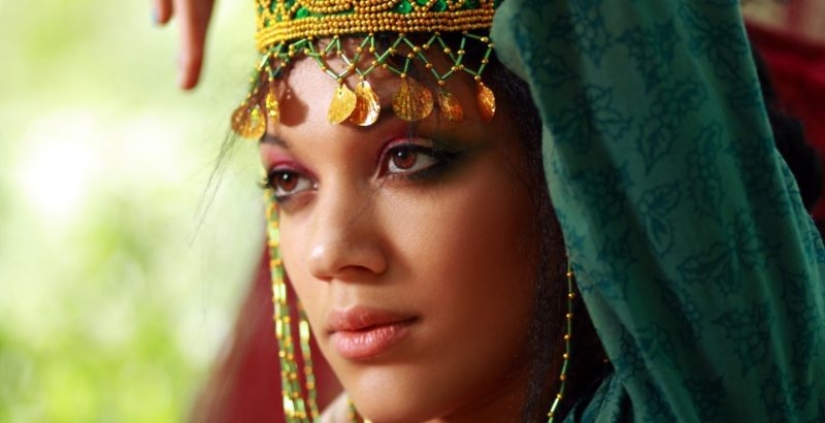
We know for a fact that Al-Kahina lived in northern Africa and that she led the resistance of the Christian and Jewish Berber clans to the Arab conquerors. This happened in the seventh century, when the Arab tribes moved Westward, expanding their possessions and forcing the peoples to change their faith and traditions and convert to Islam.
The leader of the resistance of the Berber tribes that inhabited the territory of modern Algeria and Morocco was Al-Koseila. This man was neither a Berber, nor a Jew, nor a Greek — historians call him a barbarian. Some believe that this leader was a Visigoth, whose name was Axel, but whether this is true or not, it will not be possible to find out.

Visigoths
Al-Koseila united several disparate clans into a principality and very successfully repulsed the invaders. The Arabs did not stand on ceremony with those who refused to accept their faith, putting everything around them to the fire and sword, so no one counted on the indulgence of uninvited guests. Even those who became Muslims were treacherously turned into slaves by the newcomers from the East, violating the laws of their faith.
In one of the battles, Al-Koseila was killed and it was at this moment that Al-Kahina appeared, about which nothing was known before. One of the legends says that Dahiya was born in a poor family, but because of her beauty, she was married to the cruel and rude Prince Ores.
The ruler terrorized the inhabitants of his native village of Dahiya for a long time, until they persuaded the beauty to accept Ores ' offer. However, family life did not go well — during the wedding night, the girl hammered a nail into the head of the prince she hated, and she, as the rightful wife of the ruler, was declared the successor. Dahiya ruled her people wisely and fairly, so it is not surprising that after the death of the barbarian Al-Koseila, it was around Al-Kahina that the resistance forces rallied.
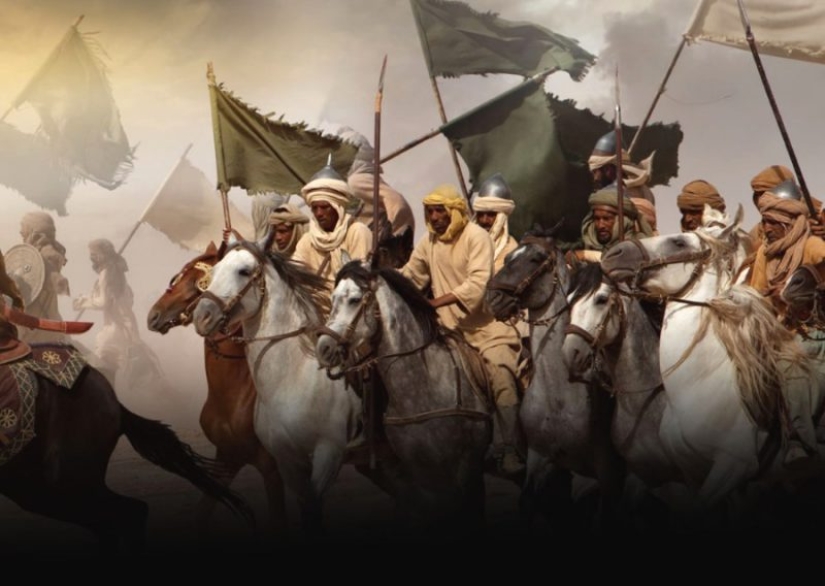
Medieval Arab cavalry (reconstruction)
The Berbers believed that the clever and determined Dahiya Al-Kahina was a new incarnation of their leader who had died in battle, and they vowed to fight under her banner to the last man. Legends say that this woman gained power not only because of her managerial qualities, but also because of her unprecedented, almost unearthly beauty.
Since the identity of Dahiya is shrouded in legends, we can not claim to be reliable, but in the annals she is described as a very tall, slender and dark-skinned woman with huge black eyes. Some sources claim that the eyes were blue and this allegedly confirms the mystical connection of Al-Kahina with the Visigoth Axel.
Ancient historians claimed that Al-Kahina was a very educated person for her time. She thoroughly knew her own and neighboring lands, easily navigated the desert and mountains, and also knew the habits of birds and animals. The military art of Dahiya was allegedly taught by the Byzantines, who also opposed the Arabs and were glad of a new ally.
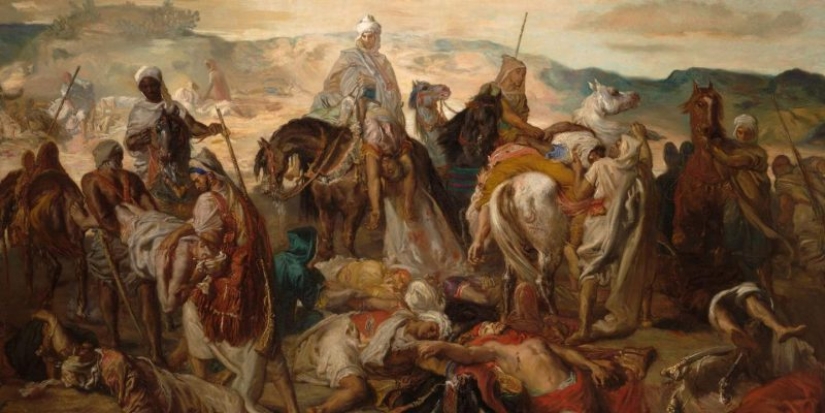
It is known that in the VII century, some of the Berbers were Christians and even many Al-Qahina warriors went into battle with icons. But nothing is known about the religion of the ruler herself — she could be either a Christian or a Jew, or a pagan. There is a version that her faith was not too much to the liking of some of her colleagues, which eventually killed Dahiya.
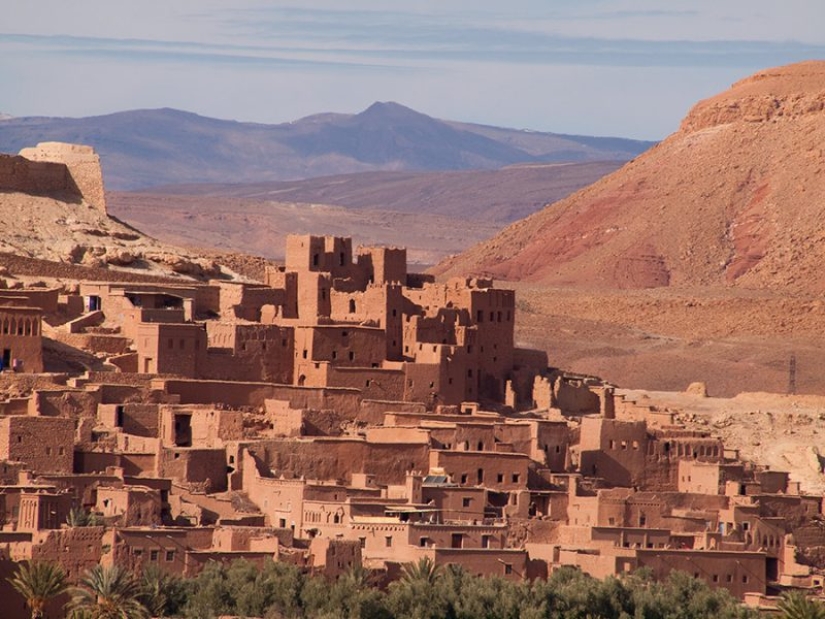
Ancient city in North Africa
On another occasion, Dahiya used the "scorched earth" tactic, ordering all cities in the Arab path to be abandoned, wells filled in, and gardens uprooted. The entire population was relocated to secluded oases in the desert and mountain villages. The Arabs, accustomed to plundering the population and not making any supplies, were forced to retreat before the lifeless desert.
This decision stopped the enemy, but caused the dissatisfaction of the leaders of several clans, who could not accept the destruction of their possessions. There was a split in the Berber camp and part of the army left Al-Qahina and went to the mountains. This was immediately taken advantage of by the Arabs, who redoubled their attack on the Dahiya warriors.
We know that Dahiya Al-Qahina was killed in battle and that treachery played a significant role in her fate. It is possible that there was a conspiracy in the Berber camp against a woman of a different faith and perhaps a different nation, but we prefer another legend.
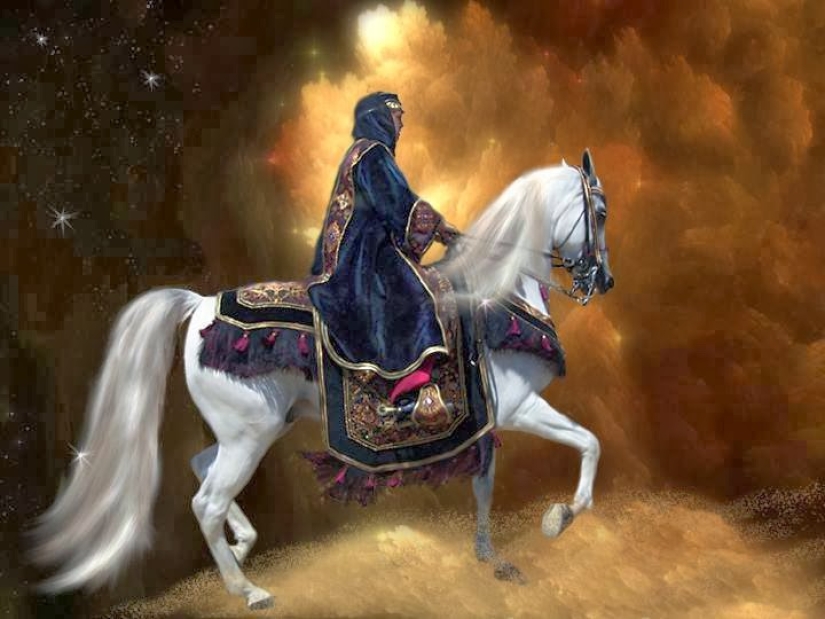
It is said that in one of the battles, Dahiya captured an Arab youth. The woman was so disposed to the guy that she adopted him and initiated him into all her secrets. This young man betrayed the queen of the Berbers, sending a note to his countrymen in a bread cake that the enemy's camp had split and now was the time to strike a crushing blow.
The Arabs immediately attacked Dahiya's camp, and there were so many of them that the red dust from under their horses ' hooves covered half the sky. Al-Kahina realized that this day she would be defeated and die, and also guessed who had betrayed her. Legend has it that she spared the young Arab, but asked him to help save the lives of two princes, her sons and his sworn brothers.
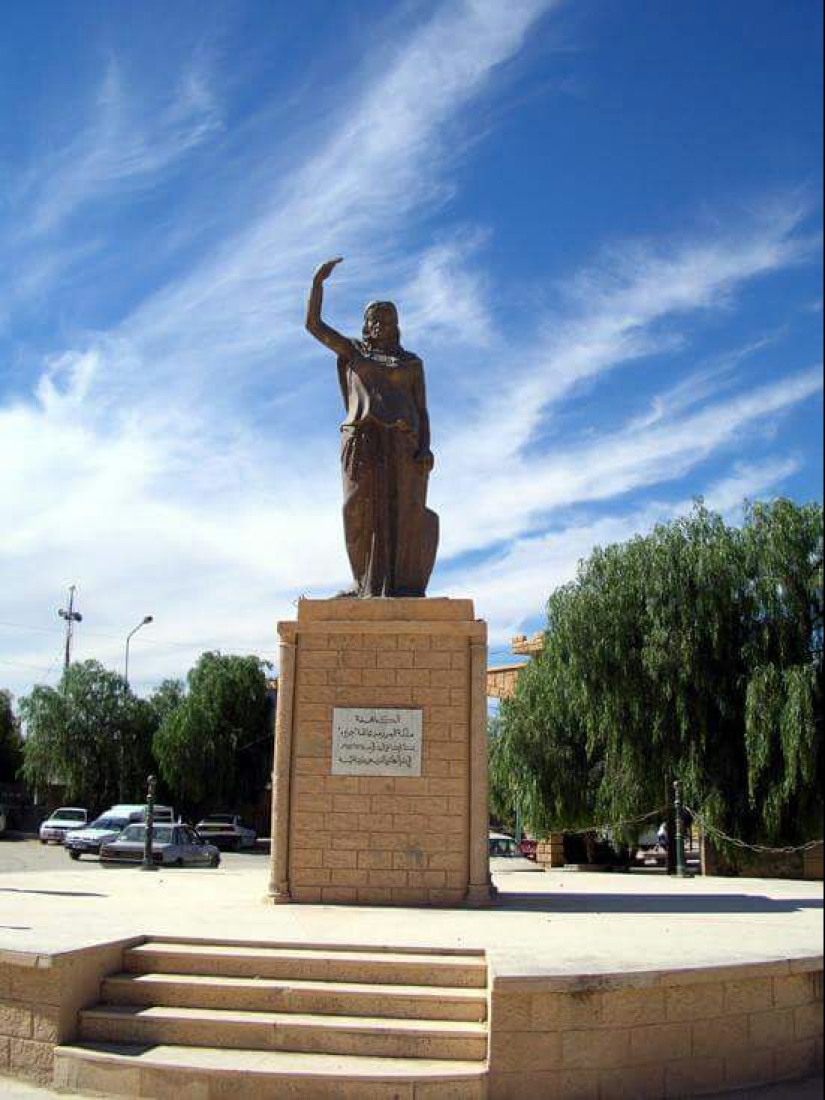
Dahiya Al-Kahina Monument in Algeria
Nowadays, when traveling to Tunisia, Algeria or Morocco, you can hear from the locals in almost every village that it was on their land that the legendary queen lived. Perhaps they were all right, for Al-Qahina was constantly moving around her domain, meeting people, encouraging them, comforting them, and organizing them against a common enemy.
Time has not preserved a single monument that bears witness to the life and struggle of Dahiya Al-Kahina, and we can only rely on a few Arab authors and numerous Berber tales and legends. We know much more about another great African ruler named Mansa Musa, who remained in history thanks to his fabulous wealth.
Keywords: Algeria | Arabs | Army | Islam | Morocco
Post News ArticleRecent articles

It's high time to admit that this whole hipster idea has gone too far. The concept has become so popular that even restaurants have ...

There is a perception that people only use 10% of their brain potential. But the heroes of our review, apparently, found a way to ...
Related articles

Many writers, including Nikolai Gogol in his immortal «Taras Bulba» mentioned that Sich women were not allowed. There is ...

In addition to decent women and prostitutes, for many centuries there was a third, special kind of ladies-courtesans. In Europe, ...

Everyone who has experienced migraine attacks knows well that this condition is different from a normal headache. This is a whole ...

New Year's is a time to surprise and delight loved ones not only with gifts but also with a unique presentation of the holiday ...